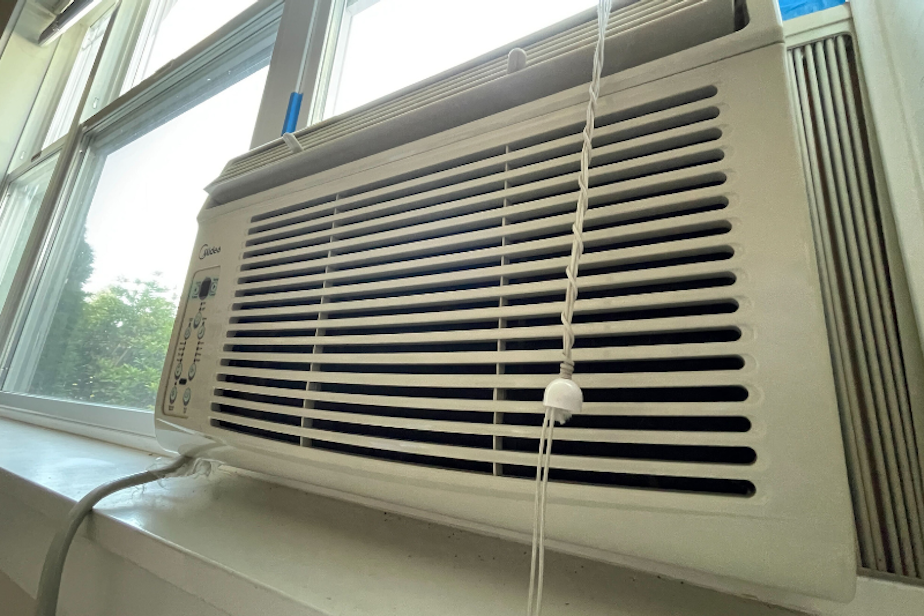The best time to apply for an AC unit, before federal funding cools off in Washington

A program that helps low-income families in Washington state access air conditioning units is at risk, as pandemic funding runs out.
“There hasn’t been a widespread need for cooling until the 2021 heat domes,” said Brian Sarensen, director of Washington state's Low-Income Home Energy Assistance Program.
The program helps families access AC units, furnace replacements, and other home heating and cooling needs. Sarensen notes that the state has historically focused on helping people heat their homes. The AC program came online in late 2020.
During the pandemic, the federal government nearly doubled the budget for this program, but now that extra funding is coming to an end; funding that is crucial to the AC program, Sarensen said.
“We've been able to get cooling to low-income households," he said, adding that without more funding, the program will start asking difficult questions. “How much should we set aside for the summer? Does that impact keeping people warm in the winter?”
The program tried to spread out the extra federal funding to avoid going over a funding cliff, however, it still won't have enough money to serve everyone.
Sponsored
The state's program uses heat disparity maps and other calculations to determine how much money each area needs. Then money is distributed to local community action agencies. Families can apply for assistance through these local agencies, however, if your local agency uses all of its funding for the season, you cannot get an AC unit.
Sarensen said that, this past summer, almost half of the local agencies shut down before the end of the season due to running out of funds.
The next round of AC funding begins October 2. It is recommended that families apply for air conditioning units during the off season — fall and winter — for better chances at receiving a unit before funding runs out.
Sarensen understands that getting an air-conditioner, as temperatures cool down, is not at the top of people’s minds, noting that “with the population that we're serving, they're moving from crisis to crisis.” He says people are worried about winter, “they're not thinking about cooling their houses in the summer. They're thinking about whether I can afford to live above 60 degrees and put food on my children's plates.”
Recent studies have shown that neighborhoods that have more people of color and lower incomes tend to be hotter. These areas generally have less green space and more buildings, creating a heat island.
Sponsored
You can find more information on the Low Income Energy Assistance Program website. You can contact the program by calling 360-725-2857 or emailing eap@immerse.wa.




